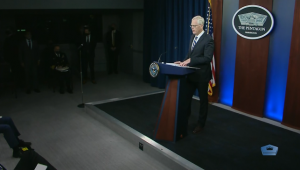from The Wall Street Journal,
12/7/16:
Critics see threat to civilian oversight of government; backers cite nominees’ broad experience.
resident-elect Donald Trump on Wednesday turned to a third retired military officer to help him run the country when he takes office in January, a move that represents an unusual level of military influence in the executive branch.
Mr. Trump gave the nod to retired Marine Gen. John Kelly to lead the Department of Homeland Security, according to people familiar with the decision, a nomination that comes after he already has asked retired Marine Gen. James Mattis to be his defense secretary and retired Army Lt. Gen. Mike Flynn to be his national security adviser.
In addition, Mr. Trump is considering retired senior officers for at least two other top jobs: retired Army Gen. David Petraeus or retired Adm. James Stavridis to lead the State Department, and Adm. Michael Rogers to become director of national intelligence.
In so doing, Mr. Trump is plumbing the global expertise and experience that comes with a life in the U.S. military, but he has also aroused concerns that his reliance on retired officers to lead security agencies ignores an important constitutional tenet of civilian oversight of the government.
“I can’t honestly recall an administration with as many flag officers” in top roles, said Thomas Alan Schwartz, a history professor at Vanderbilt University. “I think this is probably somewhat unprecedented.”
The effects of the multiple military appointments are hard to predict. The generals’ presence might help ensure that the White House will have a deep understanding of the Pentagon’s operations from those who have spent time in combat, but it doesn’t necessarily mean these retired officers will be more likely to push the White House into armed conflict.
Mr. Schwartz noted that retired Gen. Colin Powell, who served as President George W. Bush’s first secretary of state, was one of the most cautious members of that White House’s foreign-policy team.
“Even though there may be a preference to make sure there are well-funded services and that soldiers are well taken care of, it doesn’t mean there will be a propensity to use force,” he said.
Critics of Mr. Trump still believe the choices threaten the constitutional fire wall between the civilian government and the military. “This is not normal,” said Stephen Miles, director of the antiwar Win Without War coalition. “As the saying goes, if all you have is hammers, everything looks like a nail.”
More From The Wall Street Journal (subscription required):














